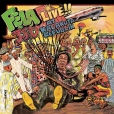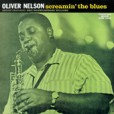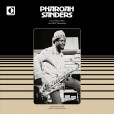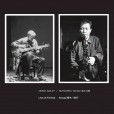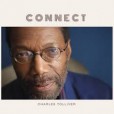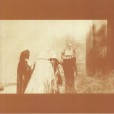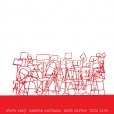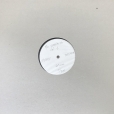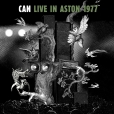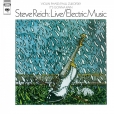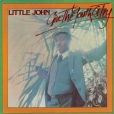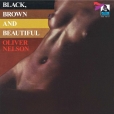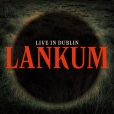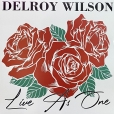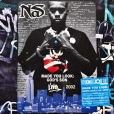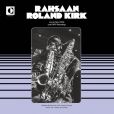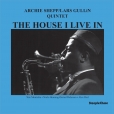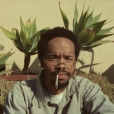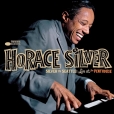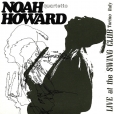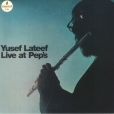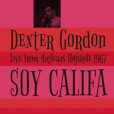Your basket is empty

Aka J.J.D. (Johnny Just Drop).
‘Recorded in autumn 1976, six months before the army attack on Kalakuta Republic, this is a lampoon of ‘been-to’ Nigerians, who had been to Europe or the US and returned with an inferiority complex about African culture. Ghariokwu Lemi’s front-cover portrays a suited-up been-to, dressed like a cartoon British toff, as he parachutes into a Lagos street to the bemusement of passers-by. The back cover shows a more funkily dressed been-to, wearing US-style ghetto-chic, but looking equally out of place. See how these JJD’s dress and talk, sings Fela, they are trying to be foreigners. In response, the chorus repeats the single word ‘original’, invoking Fela’s closing line on Gentleman: ‘I no be gentleman at all-o, I be Africa man, original.’‘
With Eric Dolphy, Richard Williams, Roy Haynes and George Duvivier in 1960, Van Gelder at the controls.
The first release of this ORTF recording before an audience at studio 104, Maison de la Radio, Paris.
A crack quartet, with Danny Mixon on keys (who played in this period with Grant Green and Mingus), Greg Bandy on drums (Yusef Lateef, Joe Henderson) and bassist Calvin Hill (who features on McCoy Tyner’s Sahara). All three were graduates of Betty Carter’s notoriously well-picked, exacting set-up.
Wonderful, core Sanders repertoire, too: Love Is Here and The Creator Has A Masterplan… Trane’s I Want To Talk About You… and a firing version of Love Is Everywhere, which raises the roof.
Properly licensed; sleeved in a classic tip-on gatefold, with notes and pictures; mastered from the original master tapes.
The first album in thirteen years by this great trumpeter (and founder of Strata East).
A quintet — with US veterans Jesse Davis, Keith Brown, Buster Williams and Lenny White — joined by Binker Moses on a couple of cuts.
It’s Gonna Rain is a total knockout.
Steve Reich’s first official piece is spun out of a chance encounter with a Pentecostalist preacher at work in San Francisco’s Union Square Park in 1964.
“He’s talking about the flood in the Bible and Noah and the ark, and you’ve got to remember the Cuban missile crisis was in ‘62, and this was something hanging over everyone’s head ... that we could be so much radioactive dust in the next day or two. So this seemed very appropriate…. There are two loops of his voice, starting in unison. And then one slowly creeps ahead of the other — I just did it with my thumb on the recording reel of one of the machines. And so they go out of phase. It’s like a canon or a round, like Row, Row, Row Your Boat. And you get first a kind of shaking, a reverberation, and then you get a sort of imitation and gradually you begin to hear it as a round. And that’s exactly what happens in this piece.”
Apocalyptic, riveting, banging, urgent, game-changing… it’s killer.
‘Originally released in 1970, Black, Brown and Beautiful saw legendary composer and arranger Oliver Nelson musically address the state of black America in the wake of the assassination of Martin Luther King. Tracks like Requiem, Lamb Of God and Martin Was A Man, A Real Man directly address the passing of King, whereas Self Help Is Needed and I Hope In Time A Change Will Come passionately ask questions still unanswered today.
“I have always felt that the Federal Government wasn’t going to do a damn thing and American Blacks were going to have to do it themselves. However, you can’t have a foot on your neck making it impossible for you to help yourself. That seems logical – doesn’t it?”
‘Musically, this is a sumptuous big band banquet with Nelson himself talking the soprano sax solo on the aching I Hope In Time A Change Will Come. Those who are fans of classic Nelson albums like The Blues And The Abstract Truth (1961) and the equally polemical The Mayor And The People (1971) will find much to enjoy here.’
‘The opener is a statement of intent — frazzled, shuffling drums, ketamine oud, heavy sub bass — something like Wordsound’s Scarab zooming out of the 90s into the future. Tombaroli is a head nodder, with insistent percussion and banging pulse. A lysergic fever-dream, Bullet Holes dips into spooked psychedelia; No Minus sounds like a distant cousin of DJ Premier’s production Come Clean, for Jeru.
‘Channel 83 lands us back in the club for a rib-rattling stomp, weaving mystical soundsystem magic with its stunted horns and swirling voices. The grimy judder of Expect Excerpt slides proceedings down to a bleary-eyed half-speed, like a party which won’t let you leave. Mount Point is a welcome release, an early morning sunrise — rich, slow, and shimmering — before Landings Dub signals the end of the journey with a metallic elegy; both a summing up of the record, and the contemplation of your flipping it, and re-entering the world of Detraex Corp.’
From one of his most creative periods, leading the Vibration Society — Ron Burton, Dick Griffin, Jerome Cooper and co — through one-of-a-kind, freewheeling, radiant wonders like The Inflated Tear (about his going blind) and Volunteered Slavery. Stevie’s My Cherie Amour pops up, trailering next year’s Blacknuss LP.
Kirk called it all ‘black classical music’.
‘Earl is on another level. The way he deploys his skill, humor, and encyclopedic knowledge of hip-hop has made him one of the most effortlessly deep and cool rappers alive’ (Pitchfork).
From August 1965, pitched between the sessions for Song For My Father and Cape Verdean Blues. Both classic numbers are here, in scorching renditions. Twenty-year-old Woody Shaw announces himself in fine style on the helter-skelter opener Kicker. Joe Henderson plays a blinder in Silver’s shows around this time, gloriously cutting loose on the hits. You need this LP plus the Ezzthetics CD Live New York Revisited, which dovetails nicely. Hot stuff.
With Michael Smith on piano, Noel McGhie on drums, and Bob Reid on bass, in April 1974; originally released by Calumet Records.
A performance for Danish TV, never released on vinyl until now, with Kenny Drew, Niels-Henning Ørsted Petersen and Albert Heath. The title track is storming Afro-Cuban jazz (from the unmissable Blue Note LP A Swingin’ Affair).
